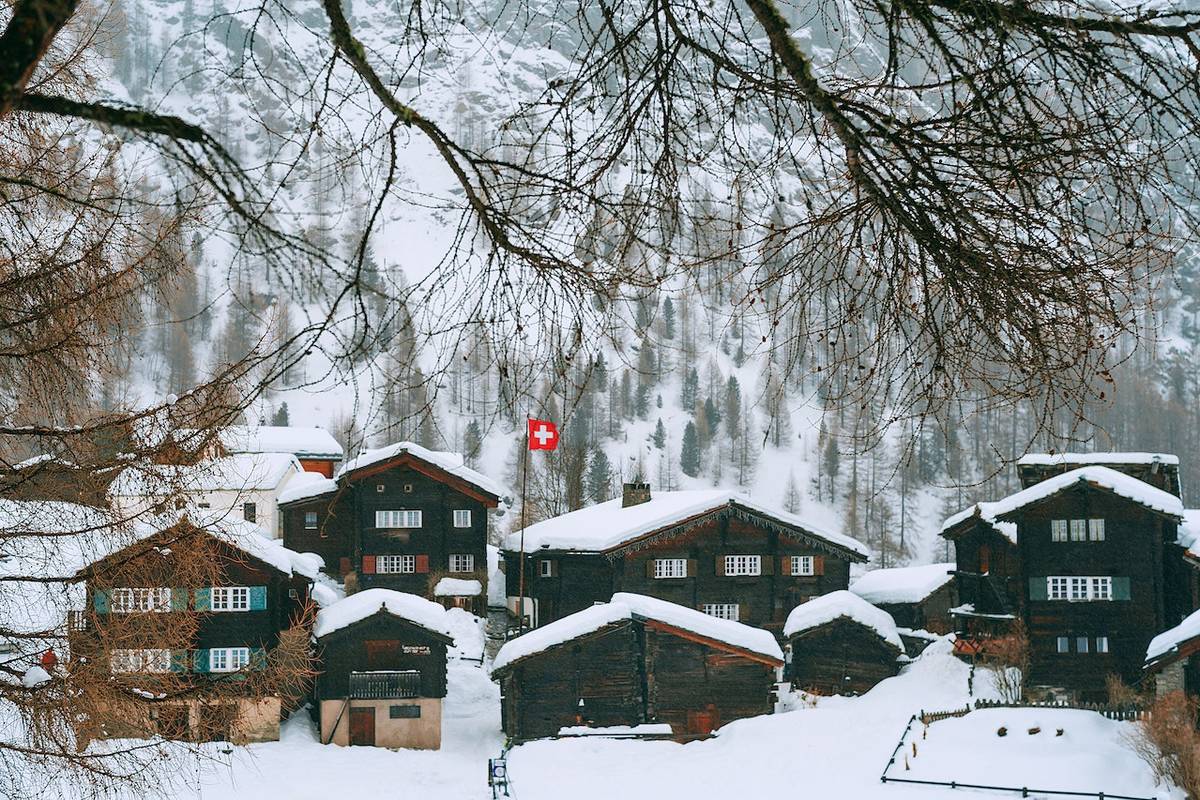Famous for being one of the best countries to live in, Switzerland has four national languages and is known for a variety of Alemmanic dialects called “Swiss German” that are widely spoken in the German-speaking part of Switzerland.
Whether you are going to Switzerland for work or leisure, you absolutely need to know these useful Swiss German phrases and slang expressions that you will find to be largely different from Standard German.
Swiss German, Explained
Swiss German is an umbrella term for the Alemannic dialects spoken in the German-speaking part of Switzerland. Did you know that the Alemannic dialects spoken in other countries are also grouped together with Swiss German, especially the dialects of Liechtenstein and Austrian Vorarlberg?
However, the dialects of Swiss German are not Swiss Standard German, the variety of Standard German used in Switzerland. Curiously, Standard German speakers fully understand Swiss Standard German, while most people in Germany do not understand Swiss German.
- Related: Five Secrets to German Pronunciation

Photo by Hugo Heimendinger
Useful Swiss German Phrases and Slang Expressions
Grüezi
“Grüezi” [ˈɡ̊ryə̯t͡sɪ] is Swiss-German for “hello,” a conversation starter that you must know. It cannot be left out of our top 10 list, as you will hear it everywhere in Switzerland!
Merci Vilmal
“Merci vilmal” means “thanks a lot.”
As you might guess, “merci vilmal” is a mix of French (“merci”) and German (“vilmal” comes from the Hochdeutsch German “viel mal,” which means “a lot.” “Vilmal” is the Swiss German slang version of the phrase).
Wämmer eis go ziie?
“Wämmer eis go ziie?” (“Do you want to go for a drink?”) is a Swiss German way to ask someone for a casual drink.
En Guete
Here is another handy phrase to know when moving around in the German-speaking cantons of Switzerland. “En guete” ([əŋ ˈɡ̥uətːə/] means “Have a good meal!”
Fröit mi
As a new person in the German part of Switzerland, you will meet many new people and get introduced a lot. This is a common Swiss German phrase to use when being introduced. Pleased to meet you!
Wie gaats dir?
What to say if you are meeting someone in a more casual setting? “Wie gaats dir?,” which translates to “How are you?”
Znüni
It is impossible to ignore the fact that there is a separate expression for “second breakfast” in Swiss German. Why is that?
The truth is that working hours in Switzerland are typically long, so locals usually take a break from working to enjoy a second breakfast at around 9 a.m., hence “znüni,” which literally translates to “at nine.”
I hätti gern es
Eating out and ready to make your order? “I hätti gern es” (“I’d like a…”) is the phrase you need to know to do it.
I würdi gern e Schwiizer Spezialität probiere
When in Switzerland, you will want to try many Swiss specialties, including beer, chocolate, and other products. If you feel lost or need a general expression to try any Swiss specialty, make sure to use “I würdi gern e Schwiizer Spezialität probiere,” which means “I would like to try a Swiss specialty.”
Röstigraben
Last but not least, the term “Röstigraben” ([ˈrøːstiˌɡraːbən]) is used to describe the cultural divide between the French- and German-speaking regions of Switzerland.
Essentially, “Röstigraben” derives from two words. The Swiss German word “Rösti” is used to refer to hashed potatoes and was initially used in the canton of Bern. The Saane/Sarine river valley, located in the multilingual canton of Fribourg, divides the two linguistic regions in question, giving the word “Graben” both the literal and abstract meaning of a “rift.”
It may also be interesting to know that the boundary between cantons that speak German and the Italian-speaking canton of Ticino in southern Switzerland is referred to as the “Polentagraben.”

Learn new languages smarter and faster.
In Summary
Although different from Standard German, Swiss German is not difficult to learn. As soon as you start exposing yourself to the language, you will get a better feel for which phrases to use in which context.
But don’t stop there! Sign up for Lingvist’s German course to practice at a level that’s tailor-fitted to your needs. Our app will automatically give you more opportunities to practice until you get it right.




